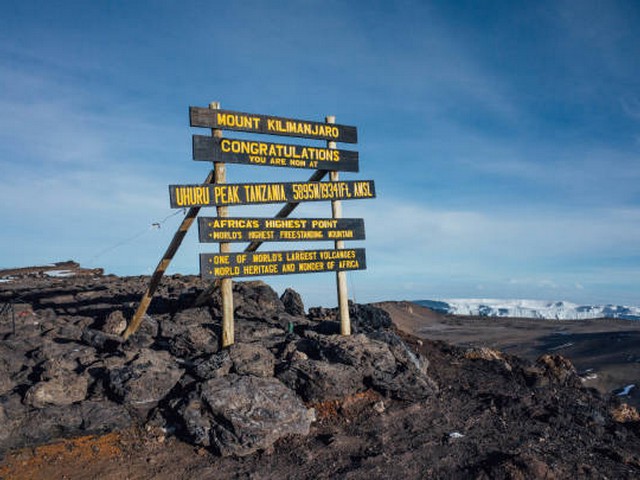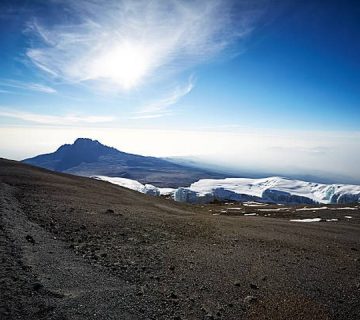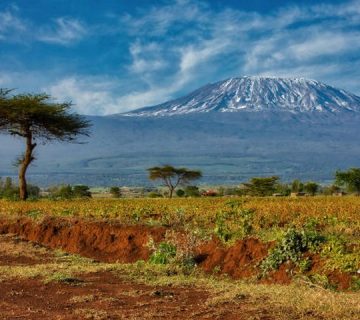Discover the Magic of Kilimanjaro: Trekking and Cultural Festivals
High above the African plains stands Mount Kilimanjaro, a beacon for adventurers and culture enthusiasts from around the globe. At the Kilimanjaro Centre for Trekking and Ecotourism (KCTE), we believe that the journey to the roof of Africa is not just about scaling peaks; it’s an immersive experience that combines thrilling adventure with rich cultural heritage. If you’re yearning for a unique blend of physical challenge and cultural exploration, "Kilimanjaro Trekking and Cultural Festivals" offers an unforgettable escape into the heart of Tanzania.
Why Combine Trekking with Cultural Festivals?
Kilimanjaro is not only the highest mountain in Africa but also a symbol of diverse cultural narratives that surround it. The local tribes, particularly the Chagga and Maasai, are integral to the region’s rich heritage. By combining trekking with cultural festivals, you embark on a holistic journey that enriches your understanding and appreciation of the local customs and traditions while you conquer challenging trails.
1. The Spiritual and Cultural Significance of Kilimanjaro
Kilimanjaro has been a sacred site for centuries, deeply revered by the surrounding tribes. The mountain is often seen as a deity—a provider of fertile soil and water. Participating in cultural festivals gives trekkers insight into the spiritual significance of this majestic mountain, transforming an ordinary climb into a profound cultural pilgrimage.
2. The Harmony of Nature and Culture
As trekkers climb through different ecological zones—from lush rainforests to alpine deserts—the cultural narratives of the local tribes unfold. These stories and traditions are as diverse as the landscapes themselves, offering a harmonious blend of nature and culture that emphasizes the interconnectedness of the local ecosystem and its people.
The Best Cultural Festivals to Experience During Your Trek
Kilimanjaro Marathon
Held annually in late February or early March, the Kilimanjaro Marathon is more than just a race. It is a celebration of endurance, both physical and cultural, attracting participants and spectators from around the world. Timing your trek with this event allows you to experience the vibrancy of Tanzanian hospitality and the communal spirit of both local and international runners.
Mwaka Kogwa
Imagine ending your climb with the four-day Mwaka Kogwa festival, celebrated in Zanzibar close to Kilimanjaro. Taking place in July, this festival marks the Shirazi New Year with mock fights, a symbolic burning of the hut, and the resolution of disputes to start the year afresh. It’s a poignant reminder of the importance of community and new beginnings—themes that resonate deeply after the personal accomplishment of summiting Kilimanjaro.
Wanyambo Festival
The Wanyambo Festival, held in January, allows trekkers to delve into the heart of the Chagga culture through music, dance, and food. Situated near the foothills of Kilimanjaro, participating in this festival before your trek sets a tone of excitement and deep cultural appreciation that carries through to the summit.
Preparing for Your Trek: Tips and Insights
Embarking on a trek up Kilimanjaro requires preparation, both physical and cultural. At KCTE, we provide comprehensive guidance to ensure you are fully prepared for the journey ahead.
Physical Preparation
Kilimanjaro is a non-technical climb but still demands good physical condition. Engage in cardio, strength training, and hiking months before your trip. Acclimatization days are also built into our itineraries, allowing your body to adjust to the altitude gradually.
Cultural Preparation
Understanding local customs and language enriches your trekking experience. We recommend learning basic Swahili phrases and familiarizing yourself with local customs through our pre-trek workshops. This knowledge fosters respect and deeper connections with the community.
Why Choose KCTE for Your Kilimanjaro Adventure?
At KCTE, we are more than just tour operators; we are custodians of the local culture and environment. Our expert guides are natives with deep ties to the mountain’s heritage, offering you an authentic and sustainable trekking experience. By choosing us, you contribute to the local economy and environmental conservation efforts, ensuring that the beauty and culture of Kilimanjaro endure for generations to come.
FAQs About Kilimanjaro Trekking and Cultural Festivals
What is the best time to visit Kilimanjaro for trekking and festivals?
The best time for trekking is during the dry seasons from June to October and from December to March. Coincide your trek with cultural festivals like the Wanyambo Festival in January or the Kilimanjaro Marathon in late February.
How difficult is the trek to Kilimanjaro’s summit?
Kilimanjaro is considered a moderate trek. While it does not require technical climbing skills, the altitude can be challenging. Adequate preparation and acclimatization are key to a successful summit.
Can I participate in local festivals during my trek?
Yes, many cultural festivals are accessible during your trek. We at KCTE can organize your itinerary to include these cultural experiences, offering you a well-rounded adventure.
Embark on Your Journey
Are you ready to explore the majestic peaks of Kilimanjaro and immerse yourself in Tanzanian culture? Join us at Kilimanjaro Centre for Trekking and Ecotourism (KCTE) for an adventure that transcends the ordinary. Book your Kilimanjaro climbing adventure today and step into a world where nature and culture intertwine beautifully. Let’s create memories that last a lifetime—on the mountain and in the heart of Tanzanian heritage.
[Book Your Adventure Now]
Explore further and deeper with KCTE—where every step tells a story.




